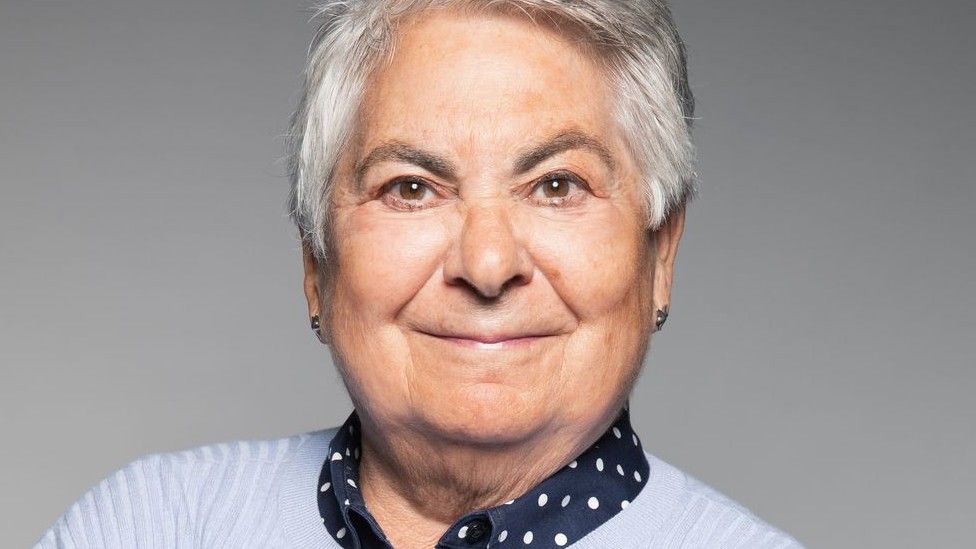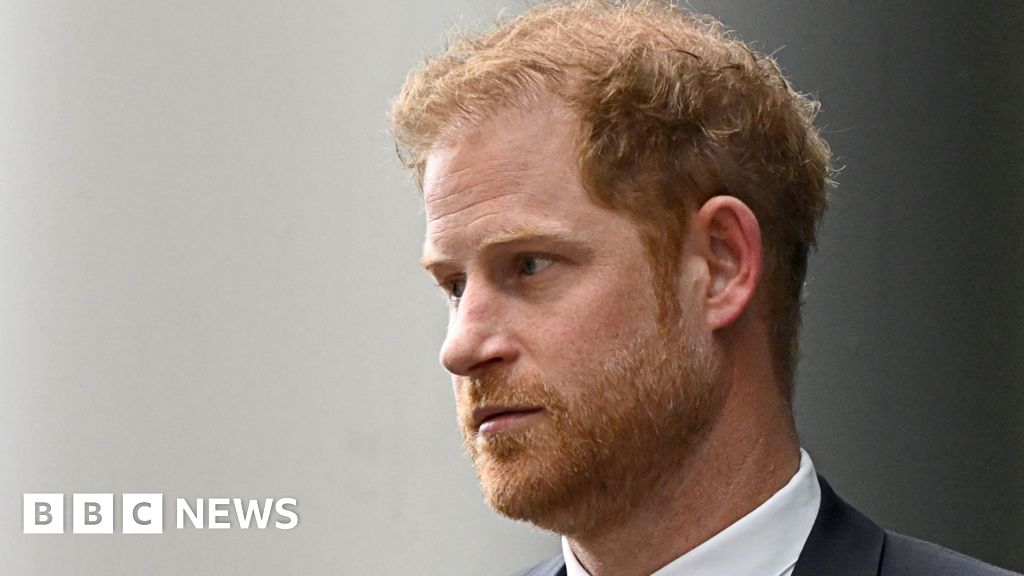ARTICLE AD BOX
By Paul Glynn
Entertainment reporter
 Image source, Barbara Charone
Image source, Barbara Charone
Barbara Charone's PR firm MBC represents stars including Madonna, Keith Richards and Mark Ronson, as well as Depeche Mode and the Foo Fighters
While heading backstage to interview The Who at New York's Madison Square Garden in the early 1970s, Barbara Charone got mistaken for a groupie.
Jobs for women in the music business in those days were "few and far between", the PR guru and new Chelsea FC director tells BBC News, and so the bouncer believed she must only have been there "for one reason".
"I turned up and said, 'I'm on the guest list', and the guy just went, 'Yeah, sure you are!'," recalls Charone, who used to write for magazines such as Sounds and Rolling Stone. "So condescending and completely because I was female."
The Chicagoan moved to The Who's hometown of London several years later, in 1974, and found it was a similar story. "When I first came to England and I started to freelance for the NME, the only other women on the paper were a photographer from New York, who was freelance, and the editor's secretary; and there was another British female photographer, Pennie Smith," she explains. "So there were hardly any women.
"And [it was] the same with record companies and [women] were always really relegated to certain kinds of jobs like artists liaison, where they would book the restaurants, hotels and travel." Charone ultimately moved from being a music journalist to working in PR and media relations.
"There weren't really many female managing directors or people in positions of importance, so [things have] changed completely," she says.
Image source, Barbara Charone
Image caption,Charone describes herself as having always been a bit of an Anglophile, growing up listening to British music in her teens and moving to London in her 20s
Charone, known affectionally (and in some quarters, trepidatiously) in the industry as simply "BC", is speaking following the release of her memoir, Access All Areas, which reflects on her 50-year career in music as a writer, publicist and co-director of her own PR firm, MBC; as well following her beloved Blues.
Written in lockdown, with a little encouragement from former client and fellow recent rock autobiographer Bobby Gillespie of Primal Scream, the book has been described by Victoria Segal in The Times as an "irrepressible account of nearly five decades in the music industry that's less lurid exposé, more side-stage view of the machinery that allows the show to go on".
"I would have liked more about that aspect of being a woman, albeit a forceful one, in a man's world," added Barbara Ellen in the Observer. "All in all, though, what a voice and what a read."
Charone's career has seen her honoured several times by Music Week, including at its Women In Music Awards. The publication described her as "one of the most successful and enduring players in the music industry".
Image source, Barbara Charone
Image caption,Charone, pictured here alongside her business partner Moira Bellas, Mark Ronson and his mother at the Brit Awards, had to break the news of Amy Winehouse's death to the producer
One of Charone's longest-standing clients, Madonna, who recently said she was making her forthcoming biopic herself to prevent "misogynistic men" from telling her story, features heavily.
She recalls witnessing the relatively unknown young singer from Detroit making her London' debut at Koko, formerly the Camden Palace, in 1983, in-front of 1,000 people. When Madonna next returned a few years later it was for two sold-out nights at Wembley Stadium.
"That kind of rise will never ever happen again," she says of the Queen of Pop. "Her domination was just so quick."
It was, she notes, "incredibly exciting to be around and participate in" the rise of such a hit-making phenomenon.
Image source, Getty Images
Image caption,Madonna has been represented by Charone for 40 years - a relationship the PR guru is immensely proud of
"People always ask me if she has changed and I don't think she has, she was always very ambitious, very smart," says Charone. "Most really great artists have a sense of themselves in terms of not just the music, but the image, everything, and Madonna had all of that.
"But she's also incredibly human like everyone else and wants to know, 'was it really any good?'"
One incident involving a tabloid newspaper using an incorrectly cropped photoshoot image of Madonna, against the star's wishes, gave Charone one of the most "nerve-wracking" moments of her PR career. But - unlike Primal Scream and REM, who separated from Charone - nothing has stopped her and Madonna making it though 40 years working closely together.
"When you're working with people at that level, of course, it's great, you can be a hero, but also you could be a villain... sometimes things aren't your fault."
Image source, Barbara Charone
Image caption,Keith Richards gave Charone the keys to his Redlands mansion while she was writing his first book
The cover of Charone's book shows her alongside another long-term client, Rolling Stones guitarist Keith Richards, who had earlier commissioned her to write his (and her) first official biography.
"I wrote that 'when Keith Richards walks in a room, rock 'n' roll walks in after him', which I still think is a great line," she smiles.
In 1977, after Richards suggested she come to join the band in Canada where they were recording a live album, Charone, who was no stranger to rock 'n' roll lifestyle herself, found herself in the Richards camp during one of the most "incredibly shaky" moments of his career. "By the time my plane landed, he'd been arrested for heroin possession," she says.
"After doing the club shows, everyone left and I stayed, and it was a really great bonding experience. To see someone go through [that] - he could have gone to jail - it was sobering to say the least, and scary, but also it was great as it afforded me the time to get to know him under really stressful conditions, so it also kind of set the framework for my book... I was lucky."
Richards' punishment was to play a concert for the blind, which Charone says is "probably the most unusual sentence ever".
"There was a cartoon the [London Evening] Standard which ran just after with some blind people and on the caption it said, 'What did we do wrong?!' It would never happen now, it's too politically incorrect."
Image source, Barbara Charone
Image caption,Former Chelsea skipper Denis Wise (left), Barbara Charone and Suggs all singing from the same hymn sheet ahead of the 1997 FA Cup Final
It was during a period spent writing the Richards book, at the guitarist's famous Redlands estate in West Sussex, that the Chicago Cubs baseball fan first started showing an interest in football on the TV; and soon after she found herself going along to watch games at her local ground, Stamford Bridge.
"I always liked sport and I got pretty obsessed with football and I've had a season ticket since the early 80s," she proudly declares.
Charone's regular match-going buddies from within her music circles have included the recently departed Depeche Mode keyboardist Andy Fletcher, as well as Suggs, who she represented when he sang Chelsea's 1997 FA Cup Final tune Blue Day alongside the players.
Her book shows she had break to off from a boozy lunch with former owner Ken Bates to deal with aftermath of another client, comedian Russell Brand's Sachsgate controversy. It also depicts her getting Madonna on the front page of The Sun wearing a Chelsea shirt.
Image source, Barbara Charone
Image caption,Charone once took Dave Grohl's bandmate Chris Shiflett to a Chelsea game, while her book shows her indulging in football banter with Liverpool fan Elvis Costello and "Celtic... United" supporter Rod Stewart
In March the club were put up for sale in "unprecedented" circumstances, as Charone puts it, before owner Roman Abramovich was sanctioned over his links to Russian president Vladimir Putin. The new consortium co-owners, looking to have fans represented on the board, turned to former executive editor of The Times (and Beatles fan) Lord Daniel Finkelstein, who in turn recommended he be joined by his long-time associate Charone.
So at the age of 70, Charone is once again moving enthusiastically and fearlessly into a traditionally male-dominated arena.
"A lot of people talked about putting fans on the board, but no one really did it, and they did it," she says. "Danny was going to be one of the fans and they wanted a woman and they asked him if he knew anyone and he suggested me.
"So I met Jonathan Goldstein, then I met Todd Boehly and the Clearlake guys [co-owners/directors] and obviously I never ever imagined that would happen, that I would be involved with Chelsea so now I'm really excited.
"I could say it's a dream come true, but I never even dreamt something as amazing as that would happen."
Access All Areas by Barbara Charone is out now.

 2 years ago
74
2 years ago
74








 English (US)
English (US)